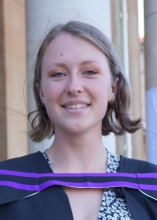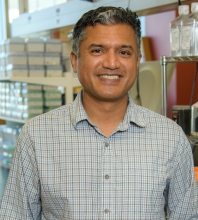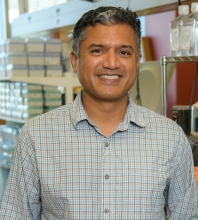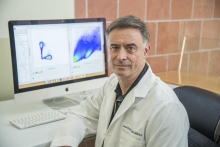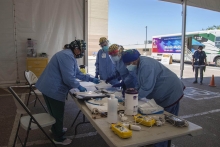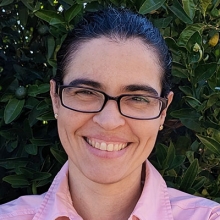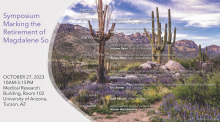News
Dr. Bhattacharya was honored for outstanding service as chair and member for the AAI Public Communications Committee, 2022-2024
Age-related changes in the clinical picture of Long COVID, Mindy J. Fain, Benjamin D. Horne, Leora I. Horwitz, (45 contributing authors), and Janko Ž. Nikolich, on behalf of the RECOVER consortium . J. Am. Geriatric Assoc. 2025 (in press)
The Arizona Board of Regents appointed Dr. Nikolich as Regents Professor. This is the highest faculty rank at the University of Arizona, and limited to no more than 3% of the tenured and tenure-track university faculty members.
Dr. Janko Nikolich elected to Serbian Academy of Sciences and Arts. Read more
This award recognizes innovation or research contributions, research productivity, quality of written and oral communication about the research, and leadership.
Sam Campos, PhD, has been recognized by the National Institutes of Health for the enormous potential of his work on human papillomavirus.
College of Medicine – Tucson’s Michael D.L. Johnson doesn’t miss a beat as a dedicated scientist who inspires the next generation of researchers.
Researchers say the genetically engineered stem cells also could pave the way for new regenerative medicine treatments for diseases such as Type 1 diabetes.
Prabhu S. Arunachalam, PhD
Assistant Professor, Immunobiology
Assistant Professor, BIO5 Institute
Dr. Deepta Bhattacharya is a Professor of Immunobiology at the University of Arizona College of Medicine in Tucson.
The Nikolich Lab hopes to ‘rejuvenate’ the aging immune system by repairing lymph nodes.
Immunologist Deepta Bhattacharya discusses the newest COVID-19 vaccines and what the future might hold for COVID-19 immunizations.
Congratulations to Dr. Gayatri Vedantam as she is honored as a Women of Impact Awardee!
Congratulations to Dr. Felicia Goodrum as she is honored as a Women of Impact Awardee!
The Aegis Consortium awarded seed funding to eight projects that align with the UArizona Health Sciences center’s mission to create a pandemic-free future.
Dr. Michael D.L. Johnson named Associate Dean for Basic Science Research and Graduate Studies!
Pierce Longmire has been awarded Achievement Rewards for College Scientists Scholar for outstanding students!
Yamil Sanchez-Rosario awarded Howard Hughes Medical Institute Gilliam Fellowship to advance equity and inclusion in science!
Friday, October 27, 2023. Medical Research Building, Room 102.



